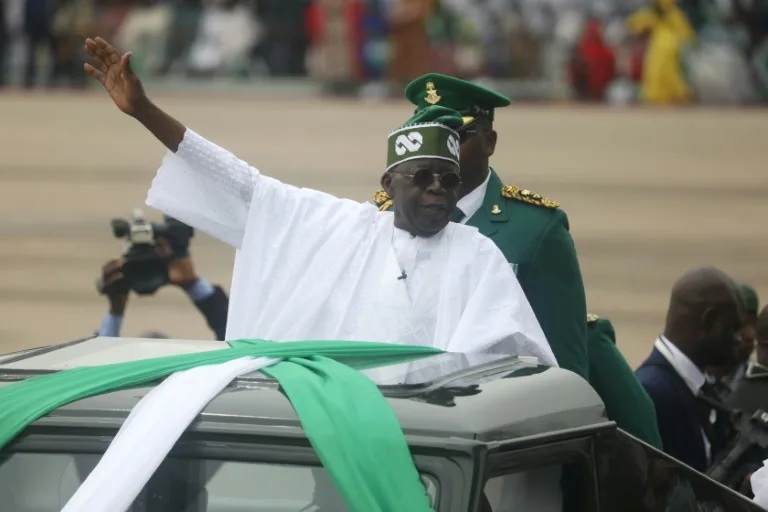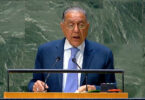ABUJA (AFP): Nigeria’s President Bola Ahmed Tinubu on Sunday proposed a temporary minimum wage hike for lower-paid workers, cheap gas-powered public transport and more social security for the poor to help offset the impact of his economic reforms.
Speaking in a national broadcast to mark Nigeria’s 63rd independence day anniversary, Tinubu’s announcement came just two days before major labour unions plan to start a strike in protest over rising costs of living.
After he came to office in May, the Nigerian president ended a long-standing fuel subsidy that cost the government billions of dollars a year and also liberalised the naira currency in a bid to draw more investment.
Government officials say the reforms are needed to revive Africa’s largest economy and investors have applauded the moves, but Nigerians are struggling with tripled fuel prices and inflation now at 25 percent.
“Reform may be painful, but it is what greatness and the future require,” the president said.
“There is no joy in seeing the people of this nation shoulder burdens that should have been shed years ago. I wish today’s difficulties did not exist. But we must endure if we are to reach the good side of our future.”
Tinubu said after talks with labour and businesses, the federal minimum wage for the lower-grade workers would increase by 25,000 naira a month ($32) for the next six months.
He said the government was also preparing to speed up the introduction of gas-powered buses for public transport, which would lower the costs of transport — one of the main complaints for Nigerians since the fuel subsidy removal.
The National Labour Congress (NLC) and the Trade Union Congress (TUC) — the major unions who represent industries from aviation workers and nurses to teachers and bankers — have called an indefinite strike on October 3 because they say the government failed to address their concerns.
Tinubu, a former Lagos governor elected in February in a highly contested ballot, has promised to bring in more investment to Nigeria and tackle the country’s complex security challenges, from jihadists to bandit militias carrying out mass kidnappings.
The Nigerian leader has also sought to shake up the country’s central bank, whose previous director critics say was reasonable for unorthodox monetary policies that kept investors away. The former central bank director has been replaced and arrested.







